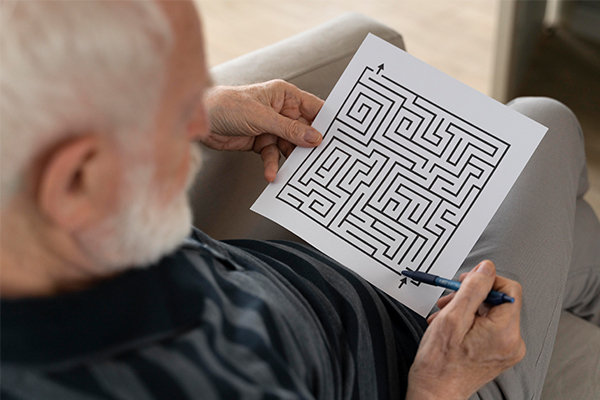END-OF-LIFE DEMENTIA CARE
Caregivers often experience special challenges surrounding end-of-life dementia care because the progression of the disease is so unpredictable.
With dementia, a person’s body may continue to be physically healthy, however, the disease causes the gradual loss of thinking, remembering and reasoning abilities, meaning that eventually, the person affected will no longer be able to make or communicate choices about their healthcare.
Caring for someone with dementia can be extremely stressful and demanding. The following symptoms are very common for those who feel like they are always on call:
- Depression
- Anxiety
- Fatigue
- Difficulty maintaining a work/life balance
It is important to realize that these types of feelings are completely normal. Hudson Valley Hospice’s experts provide support to a patient’s caregivers near the end of life, as well as help them understand the difficult healthcare decisions they may need to make for their loved ones.

MAKING MEDICAL DECISIONS
When making healthcare decisions for someone with dementia, it is important to consider the person’s quality of life. For example, some medications may be available that can delay or keep symptoms from getting worse for a limited time, others may be offered that can control some behavioral symptoms, but some caregivers may not want drugs prescribed if the side effects outweigh the benefits. Here are some questions you can ask the hospice team:
- How will your suggested approaches affect my loved ones’ quality of life?
- How can I best decide when a visit is necessary?
- What specialized services will I have access to?

HOW DOES BREATHE WORK?
- An individualized plan of care is developed with your doctor to manage your symptoms and meet your needs.
- You have access to our Registered Nursing Staff 24/7 for help with handling emergencies.
- You have regularly scheduled home visits from specially trained medical staff.
- You will receive respiratory therapies and services that address comfort and quality of life.
- Specialized respiratory equipment, medications, and oxygen will be provided as recommended by your doctor.
- You will have access to all of Hudson Valley Hospice’s services, including Music Therapy, volunteer services, home health aides, and spiritual and emotional support.
SPIRITUAL AND EMOTIONAL COMFORT
As dementia progresses, it can be difficult to provide emotional or spiritual comfort to a person with severe memory loss. However, even in advanced stages of dementia, a person may benefit from some of the following:
- Being touched or massaged
- Listening to music
- Looking through old photos and memories
Our team is here to support our patients and their loved ones and help them find ways to connect and make the most of their time together.


RESOURCES
Have additional questions? We offer reference materials and websites that can help! You can download and print the documents from these links and visit the websites to learn more:
- Hudson Valley Hospice General Brochure
- Hudson Valley Medical Health Choices Palliative Care Brochure
- Hudson Valley Hospice Dementia Brochure
- Hudson Valley Hospice Grief Support
- Alzheimer’s Association
For more information about what Hudson Valley Hospice can provide, please call 845-240-7555.

WHAT IS MY NEXT STEP?
Talk with your family and your doctor about changing the focus of your care. You have unique needs — and Hudson Valley Hospice can help you address your distressing symptoms while offering support your family.
Start the Breathe program as soon as possible to ensure the best quality of life for yourself and your loved ones.
Breathe services are covered by Hospice Medicare, Medicaid, Veteran’s Benefits, and most insurance plans.
For more information, please call 845-485-2273.

